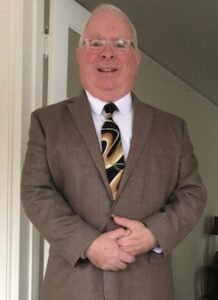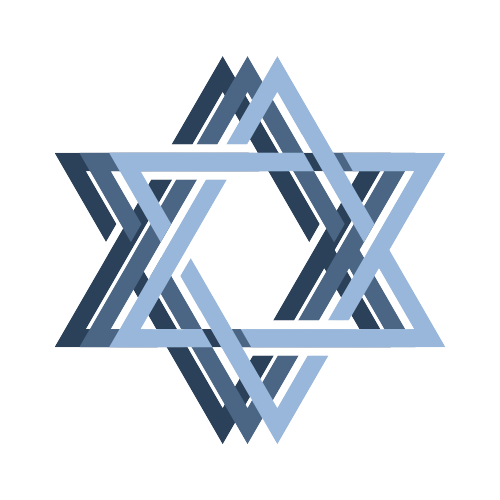
Life is about patterns. People are always looking for patterns in their lives.
The belief that bad things happen in threes is a common superstition or folk belief in some cultures. According to this belief, when one negative event occurs, two more will follow in quick succession. The internet thrives on finding the other two “bad” events. A famous rock star dies, then a train must derail and a flood must occur. (Chas ve’chalilah!)
I believe in exactly the opposite. For me, when something good happens, (at least) two more good things must happen soon after. This is my worldview, my weltanschauung (forgive any spelling errors).
There is no shortage of bad news in the media. The Russian war against Ukraine grinds on. Hamas/Islamic Jihad/PLO continue to support fatal gun/knife/car attacks on Israeli civilians, rewarding the perpetrators or their families with lifetime incomes as a reward. Just like a year ago, terrorists in Gaza rain down hundreds of rockets on civilian targets in Israel. Israel is condemned by the world’s nations for going into Gaza to wipe out the launching sites. Would we in the U.S. stand idly by while our neighbor shoots missiles into our country?
Israeli society is proving how democratic it really is, with hundreds of thousands of citizens in the streets either protesting or supporting conservative legislation. The Mississippi rises, flooding dozens of riverside cities. Thousands of refugees/migrants/immigrants flood our borders, a proof that this America os where the rest of the world wants to be.
With all of this challenging news, I choose – always – to be an optimist. We Jews are optimists. In light of the many tragic events in our history, what other way can we survive?
When I see something good happen, I take it as a harbinger of a bunch of good things to come. Good things happen in threes! This year is the 75th anniversary of the miraculous rebirth of Israel – the home of the Jewish people. This year is also the 75th year of our synagogue building. Sure, it has needed new tires (a roof), a paint job (new HVAC), some reupholstering (a total kitchen remodel), but our building continues to be the focal point of our small but loving Jewish community. The third good thing is how we came together recently, which I will mention in a minute.
Now that the pandemic emergency is officially “over”, our building is the place our community wants to gather, to see others and to be seen. One parent told me, “Rabbi, the main reason we bring our kids here each Sunday for Sunday school is this is the only place they see Jewish kids all week.”
What struck me so greatly in the past two weeks is how our community has come together, in the face of the recent funerals we experienced. We have not had an organized “Chevra Kadisha” (holy society or burial society) here in La Crosse for a few years. Our members who performed such sacred tasks in the past have moved to Madison, St. Louis Park or Olam Habah (the afterlife).
I am so proud of all our community members who have stepped up and volunteered for this sacred duty – to accompany a soul after death – and to serve the family of the deceased. Many of you volunteered to perform Shmirah – “guarding” – the act of staying in the funeral home for a few hours at a time, staying with the body before burial, reading Psalms and other Jewish texts. This holy act serves not only the soul of the deceased, and the family of the deceased person, but also the shomer or shomeret – the person who does the “watching.”
Some of you have volunteered to learn the beautiful process of Tahara – purification of the deceased’s body before burial. This is the first time we have performed such a mitzvah since Rabbi Simcha Prombaum retired four years ago. You have all learned well. I am so grateful to have such a group of committed members. We have also reconstituted a group of female members of the Chevra Kadisha, who are prepared for the same task for a woman. I am so grateful for all of you, who are prepared to perform this mitzvah together as a community. I was also overwhelmed by the huge attendance at the two funerals and shiva events we had over the past couple of weeks.
Which brings me to my point. With the COVID “emergency” declining in importance (no, COVID is NOT gone yet), we need to re-think, to re-boot our mission. Like most Reform and Conservative congregations, we have come to rely on Zoom as the major way to enable our members to continue to participate in our services and community events. For two years, our Sunday School took place ONLY on Zoom!
We have done a good job of revitalizing our events – like Purim, Chanukah, etc. – so people can get back together “live”. Our High Holiday services for the past two years were live in-person and outdoors (and on Zoom) and brought a nice turnout of worshippers.
Offering our services on Zoom has been a way to reach out to people who couldn’t join us in person, due to distance, health issues, weather or other reasons. I am so happy that we are able to constitute a minyan – the quorum needed to read Torah and say the Mourner’s Kaddish – including those who join us on Zoom. Many times, without those on them, we wouldn’t be able to offer full services.
I absolutely want to continue all our services and events on Zoom. However, in addition to Zoom, we must make the effort to bring people back – in person – to come together as a community.
I propose that we consider events like a Shabbat Kiddush Luncheon after Saturday services, or a monthly or bimonthly Friday night Oneg Shabbat or family Shabbat dinners. Some of these would require sponsors. In many congregations, families sponsor these events in honor of birthdays, anniversaries, bar or bat mitzvahs, baby namings, weddings or some other simcha (joyous event).
Our JCL – Jewish Community League – have shown they can pull off a very nice event, with good food and good times.
Our next holiday is Shavuot. Shavuot is this wonderful Jewish holiday that the fewest Jews know about. On the evening of May 25, we will meet at 7 pm – in person and on Zoom – to welcome this celebration of Matan HaTorah, the giving of the Torah. After a short service, we will enjoy bagels, cream cheese, cheesecake, and coffee, tea and other beverages, as we stay a while to learn together. Our subject is Pirkei Avot – Chapters of our Ancestors, sometimes translated as “Ethics of the Fathers” – as we look more deeply into the Jewish character and our role in the greater society. Yes, your JCL is looking for help in setting up that Thursday evening.
I hope you can join us for Shavuot. In addition to Erev Shavuot, we will have services on Friday morning (1st day Shavuot) and Saturday (2nd day, plus Yizkor service).
Chag Sameach!
Rabbi Brian Serle

